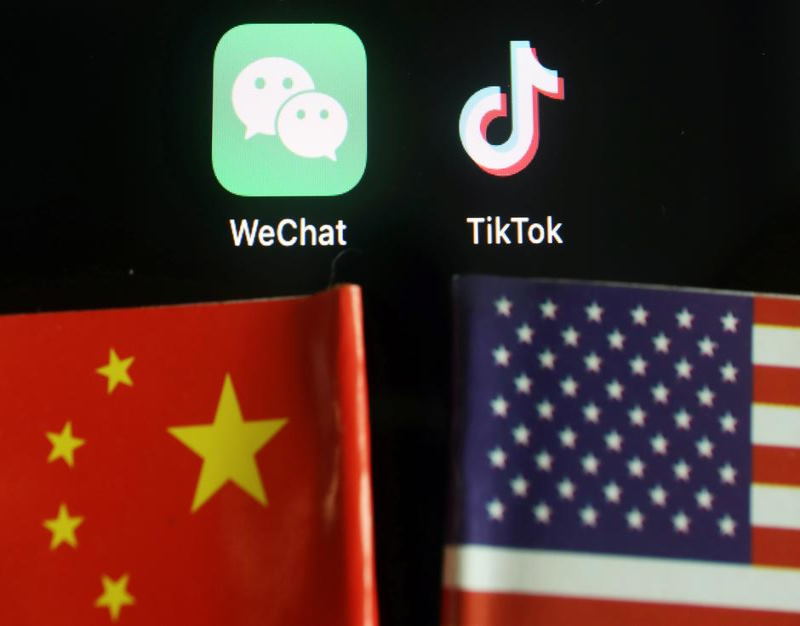Trump preps bans on WeChat, TikTok, stoking tension with Beijing

U.S. President Donald Trump has unveiled sweeping bans on U.S. transactions with the Chinese owners of messaging app WeChat and video-sharing app TikTok, escalating a high-stakes confrontation with Beijing over the future of the global tech industry.
The executive orders announced Thursday and effective in 45 days come after the Trump administration this week flagged increased effort to purge “untrusted” Chinese apps from U.S. digital networks, calling Tencent Holdings Ltd’s WeChat and Bytedance’s popular TikTok “significant threats.”
China said on Friday the companies comply with U.S. laws and regulations and warned that the United States would have to “bear the consequences” of its action.
“The U.S. is using national security as an excuse and using state power to oppress non-American businesses. That’s just a hegemonic practice,” foreign ministry spokesman Wang Wenbin told a media briefing.
TikTok has come under fire from U.S. lawmakers over national security concerns surrounding data collection as distrust between Washington and Beijing grows. Reuters on Sunday reported that Trump has given Microsoft Corp 45 days to complete the purchase of TikTok’s U.S. operations.
“We are shocked by the recent Executive Order, which was issued without any due process,” TikTok said in a statement on Friday, adding that it would “pursue all remedies available to us in order to ensure that the rule of law is not discarded”.
The ban on U.S. transactions with Tencent, one of the world’s biggest internet companies, portends further fracturing of the global internet and severing of long-standing ties between the tech industries in the United States and China.
“This is the rupture in the digital world between the U.S. and China,” said James Lewis, a technology expert with Washington-based think-tank Center for Strategic and International Studies.
“Absolutely, China will retaliate.”
On Wednesday, U.S. Secretary of State Mike Pompeo expanded a program dubbed “Clean Network” to prevent various Chinese apps and telecoms firms from accessing sensitive information on U.S. citizens and businesses.
Trump’s new orders appeared coordinated with Pompeo’s announcement, Lewis said.
“We are reviewing the executive order to get a full understanding,” a Tencent spokesperson said.
ByteDance declined to comment.
WeChat has been downloaded a relatively small 19 million times in the United States, showed data from Sensor Tower. In China, however, the app is ubiquitous as a medium for services as varied as games and payment. It is also a common platform to communicate with individuals and businesses outside China.
U.S. social media and messaging services such Facebook Inc’s WhatsApp and Messenger are blocked in China, where a “great firewall” prevents citizens from freely accessing the worldwide web, and where online communication is routinely monitored and censored.
U.S. concerns about China’s tech industry had until recently focused on telecom equipment vendor Huawei Technologies Co Ltd [HWT.UL]. As relations soured over a host of economic and human rights issues, it has sanctioned numerous other Chinese tech firms.
Tencent is the biggest target yet. It is Asia’s second most-valuable company after Alibaba Group Holding Ltd with a market capitalization of $686 billion, and is among the world’s largest social media and video game companies. It opened a California gaming studio this summer and owns minority stakes in numerous gaming and internet firms around the world, including U.S. messaging app operator Snap Inc
